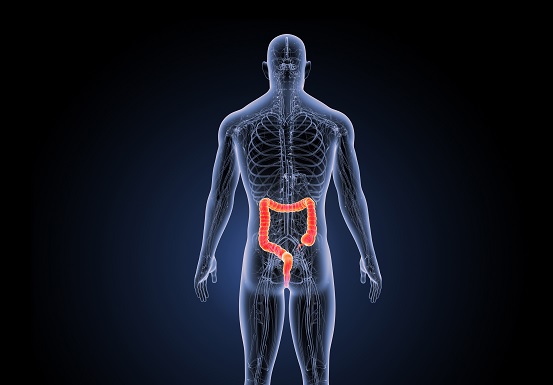
It’s the most common cancer in Singapore, and while it continues to affect those over 50 years of age*, the rate of contracting it seems to be on the rise in younger adults. Dr Mark Wong, General and Colorectal Surgeon from Mark Wong Surgery, prescribes a common sense approach to prevention and treatment.
WHAT IS COLORECTAL CANCER?
Colorectal cancer refers to a malignant tumour that starts as a polyp, or small growth, along the inner wall of the colon and rectum. Warning signs include a change in bowel habits, such as persistent or alternating pattern of diarrhoea or constipation, a change in the frequency of stools, and the presence of blood in stools.
Since polyps generally take years, not weeks or months, to become cancerous, regular screening can intercept their development by simply removing them before they become cancerous.
While not all polyps become cancerous, it is not possible to tell which ones will and which ones won’t, according to Dr Mark Wong. Therefore, all polyps are routinely removed during screening.
WHO GETS IT?
For reasons not fully understood, colorectal cancer affects more men than women. In fact, it is the most common cancer among Singaporean men, and the second most common cancer among Singaporean women. The latest report from the National Registry of Diseases Office (NRDO) revealed that more than 10,634* new cases (nearly six cases per day) in total were diagnosed between 2013 and 2017.In the same period, there were 4,082 deaths (more than two deaths per day). In the past fifty years, colon cancer made up more than half of the cases of colorectal cancer, and its percentage continued to rise throughout.
This condition affects younger patients as well. The latest Straits Times article reporting on the Black Panther actor’s death highlighted that since 1994, US cases of young onset colorectal cancer – defined as a diagnosis before the age of 50 – have increased by a staggering 50 per cent.* In younger patients, it may be related to genetically-linked hereditary cancer syndromes, which place immediate family members of sufferers at higher risk of developing it during their lifetime. In fact, the American Cancer Society is now advocating screening to start from the age of 45 years.
ANNUAL SCREENING AFTER 50
An annual Faecal Immunochemical Test (FIT) is generally recommended from the age of 50 onwards in Singapore. For those with a family history of the disease, Dr Wong recommends commencing screening 10 years before the age of diagnosis for the youngest colorectal cancer sufferer in the family. FIT is non-invasive and free for all Singaporean citizens and Permanent Residents above the age of 50 years, and can be carried out in the comfort of your own home. It involves collecting a stool sample, which is sent to a laboratory for testing.
If the FIT result is positive, patients will normally undergo a colonoscopy to rule out or confirm the presence of colorectal cancer.
“Colonoscopy is regarded as the ‘Gold Standard’ for colorectal cancer screening as it is the most accurate and reliable method available,” shared Dr Wong.
Using, high-definition, fibre-optic technology, a colonoscopy allows the doctor performing the procedure to view the inner wall of the colon and rectum in detail. If any polyps or cancers are identified, they can be biopsied or removed immediately.
An alternative method of screening is a CT scan for the colon and rectum, known as CT colonography. Unlike a colonoscopy, it does not allow removal or biopsy of suspicious findings.
LIFE AFTER SURGERY
Keyhole or minimally-invasive surgery is regarded as standard of care by many colorectal surgeons. Chemotherapy and radiotherapy are generally reserved for more advanced cancers that have spread beyond the colon and rectum.
In the first few months after surgery, patients are advised to avoid strenuous exercise and lower their intake of dietary fibre to reduce bloating and constipation. Patients may also experience more liquid and frequent stools, but this usually abates over time.
Some patients, particularly the elderly and those with rectal cancers, may experience some faecal incontinence or involuntary leakage of stool after surgery, especially if treatment involves radiotherapy. This can generally be improved with medications and pelvic floor exercises.
PREVENTIVE MEASURES
Under no circumstances does Dr Wong recommend detox programmes or colon hydrotherapy. He explained,“A healthy colon needs a flora of bacteria, which requires having faeces in the colon. Think of a luxuriant rainforest with its vibrant ecosystem of animals and plants as a normal colon with faeces. Compare this to a scorched forest after a raging fire – this is a colon washed clean of faeces by detox or hydrotherapy.”
Instead, Dr Wong advocates a balanced approach to preventing colorectal cancer. He recommends a healthy diet, incorporating all food groups in moderation, with regular exercise and most importantly, regular screening.
In Singapore, the five-year survival rate for people with Stage 1 colorectal cancer is between 85 to 95 percent. On the other hand, the survival rate for people with Stage 4 is less than five percent. Though prevention is always better than cure, with early detection, the future can still look bright for people diagnosed with colorectal cancer.
Article contributed by Dr Mark Wong Te Ching, an accredited doctor of Mount Alvernia Hospital.
Sources:
*https://www.healthhub.sg/a-z/diseases-and-conditions/24/colorectalcancer
*https://www.nrdo.gov.sg/docs/librariesprovider3/default-document-library/thespore-cancerregistry_commerativebook_-2.pdf?sfvrsn=711bf71a_0
*https://www.straitstimes.com/lifestyle/death-of-black-panther-actor-spotlights-early-onset-colon-cancer